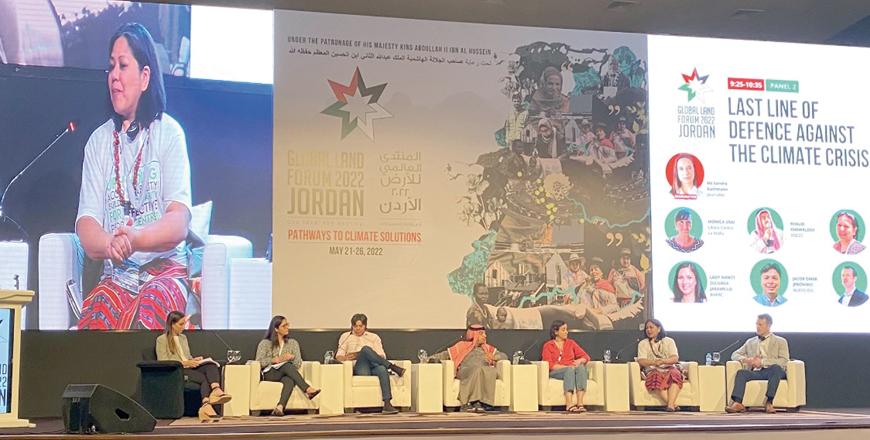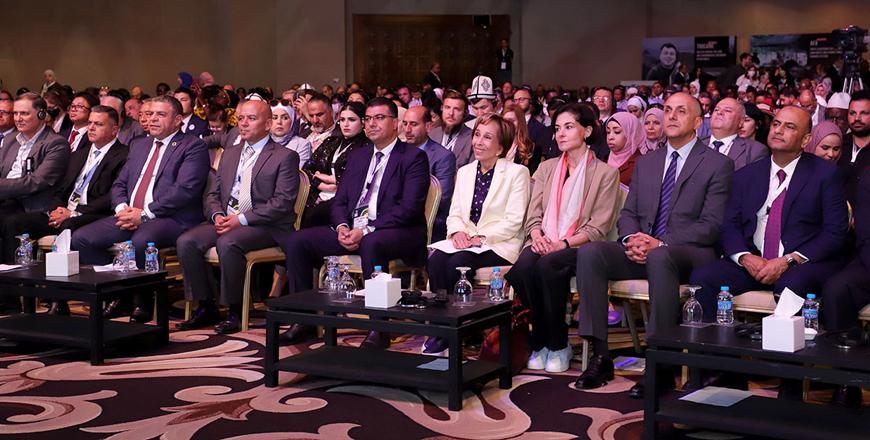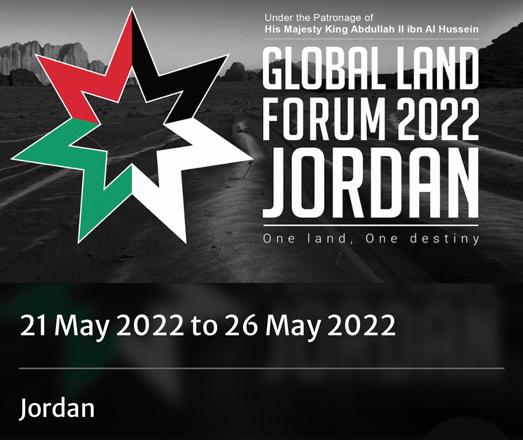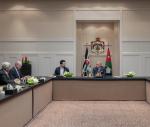You are here
GLF meet hears of violence against land, environmental defenders
By Maria Weldali - May 26,2022 - Last updated at May 26,2022

Speakers during the third day of the Global Land Forum at the King Hussein Bin Talal Convention Centre in the Dead Sea region on Wednesday (Photo courtesy of Mike Davis Twitter page)
DEAD SEA — Day three of the Global Land Forum (GLF) at the King Hussein Bin Talal Convention Centre in the Dead Sea region shed light on issues facing land and environmental defenders.
“There is a disproportionate threat and violence on indigenous communities, with particular threat on female defenders,” according to Chief Executive Officer of the Global Witness Mike Davis.
In 2020, Global Witness recorded 227 murders of land and environmental defenders, which makes 2020 the most dangerous year on record for people defending their home, land, livelihoods and the ecosystems vital for the biodiversity and the climate.
Davis also spoke about the “serious global implication” of these kinds of attacks, noting that among the solutions to stop violence on indigenous communities who he described as “key agents of climate preservation”, is implementing the right to a healthy and safe environment.
On the same note, UN Special Rapporteur on Human Rights and the Environment David Boyd, said in a video that “people are under attack for defending our planet, we need to do more to protect them”.
He added that biodiversity preservation should also be human-rights based.
The first panel session titled “Last Line of Defence against the Climate Crisis” featured panellists from Jordan, Italy, the Philippines and Guatemala, who discussed the realities of land and environmental defenders.
Lady Nancy Zuluaga Jaramillo spoke about the challenges and attacks against environmental defenders. She pointed out that, “it is not only alarming and heartbreaking, but a call to take action”.
Panellist Omar Jerónimo highlighted that violence against defenders is caused by the erosion of democratic institutions and spaces, according to the ILC.
The second session addressed the lack of attention to land tenure rights and how securing these rights are central for food resilience and confronting existing unequal land tenure regimes.
Additionally, the third day included breakout sessions, which focused on topics such as employing participatory methods and mapping technologies for securing tenure rights and social empowerment, realising women’s land rights through building a global movement for gender equal rights, and securing access to land for family farmers and the transformation of agri-food systems.
Related Articles
DEAD SEA — Deputising for His Majesty King Abdullah, Agriculture Minister Khalid Hneifat on Monday inaugurated the Global Land Forum at the
AMMAN — The Global Land Forum 2022 (GLF) and the first ever Youth GLF that will take place in Jordan between May 21 and 26 “is an opportunit
AMMAN — Jordan is set to host the Global Land Forum 2022 (GLF) and the first ever Youth GLF in May, with the aim of taking land governance a

















